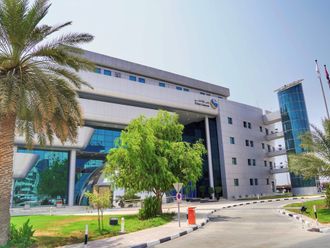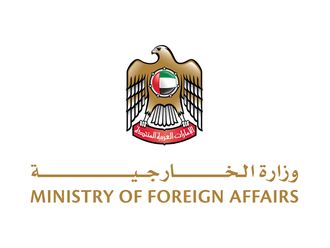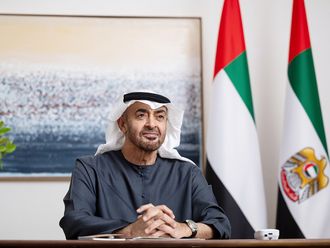Dubai:
Leadership and political will are the key ingredients for the success of any city, a top government official said at the Government Summit yesterday.
It is the visionary and innovative leadership of His Highness Shaikh Mohammad Bin Rashid Al Maktoum, Vice-President and Prime Minister of the UAE and Ruler of Dubai, coupled with his close follow-up of all major projects in the city that helped the emirate grow into the global city it is today, said Mattar Al Tayer, Chairman of the board and executive director of the Dubai Roads and Transport Authority (RTA).
Within four decades, Dubai has changed from a city with a developed area of 18 square kilometres and 100,000 inhabitants to an urban phenomenon with 650 sq km of developed area and a population of more than 2 million, he said.
His comments followed a short video on the developments in the city from 1970 to 2012, shown at the summit in a session that explored government services in global cities through the experiences of Abu Dhabi and Dubai.
“Dubai has achieved a global status through the huge projects implemented here, backed by excellent services provided by government employees,” he said.
Emirates airlines with more than 120 destinations, Dubai International Airport which caters to 57 million passengers every year, Dubai Metro, which is the longest driverless rail network stretching 74 kilometres, the Dubai Port and various year-round activities that attract tourists are some of the most important projects of the city, Al Tayer said.
“These are what put Dubai on the world map,” he added.
Leadership plays a major role in targets being achieved, especially in the establishment of excellent infrastructure, he continued.
“Leaders should have vision which is achievable. They should have the courage to face up to challenges, for example, despite global recession most of our strategic projects were completed. Delegating power is another aspect, without which a global city cannot be built.”
He also stressed the importance of governments adopting change to move forward.
One of the city’s top strengths is its infrastructure, Al Tayer said. “We keep investing in infrastructure because we understand that it is the engine for any economy.”
Sharing the experience of the capital city, Falah Al Ahbabi, who heads the Abu Dhabi Urban Planning Council, said that having a clear vision for the future is vital.
Abu Dhabi Vision 2030 lays out the future plans of the city, he said. “Abu Dhabi is looking forward to becoming a sustainable global city at a par with the best cities in the world. The city aims to become the pioneers in economic development by 2030, in cooperation with the private sector. The government will focus more on policies that will back the development,” Al Ahbabi said.
The industrial city being built will be the future hub for local, regional and international markets, he said.
Work on the project has begun and the first phase has been completed at a cost of Dh27 billion. Once fully operational, it can handle 15 million containers and 25 million tonnes of shipment. Other important projects include Al Maryah Island which will become the financial hub of the city, Louvre Abu Dhabi and the Dh91 billion nuclear energy project.












